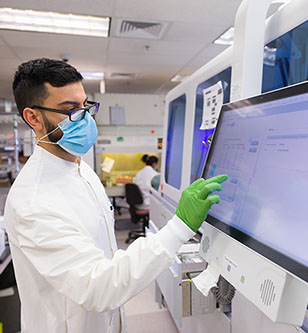Quest Diagnostics works across the healthcare ecosystem to create a healthier world, one life at a time. We provide diagnostic insights from the results of our laboratory testing to empower people, physicians and organizations to take action to improve health outcomes. Derived from one of the world's largest databases of de-identifiable clinical lab results, Quest's diagnostic insights reveal new avenues to identify and treat disease, inspire healthy behaviors and improve healthcare management. Quest Diagnostics annually serves one in three adult Americans and half the physicians and hospitals in the United States, and our nearly 55,000 employees understand that, in the right hands and with the right context, our diagnostic insights can inspire actions that transform lives and create a healthier world.
 |
Quest Diagnostics Health Trends™ is a series of reports from Quest Diagnostics on health conditions affecting a large number of Americans. Published in peer-reviewed journals, at scientific conferences and widely as a public service, the reports are designed to inform health care professionals, patients and policymakers about the status of the nation’s health.
Quest provides thousands of laboratory tests, ranging from advanced genomic tests for cancer and rare diseases to routine preventive tests for heart disease, diabetes and other chronic conditions. Our medical and scientific staff consists of 850 M.D.s and Ph.Ds. We maintain approximately 8,000 patient access points, including approximately 2,000 Quest patient service centers, and a logistics team with 5,000 courier vehicles and nearly 20 aircraft in the United States.
Journalists may contact Quest Diagnostics by emailing mediacontact@questdiagnostics.com